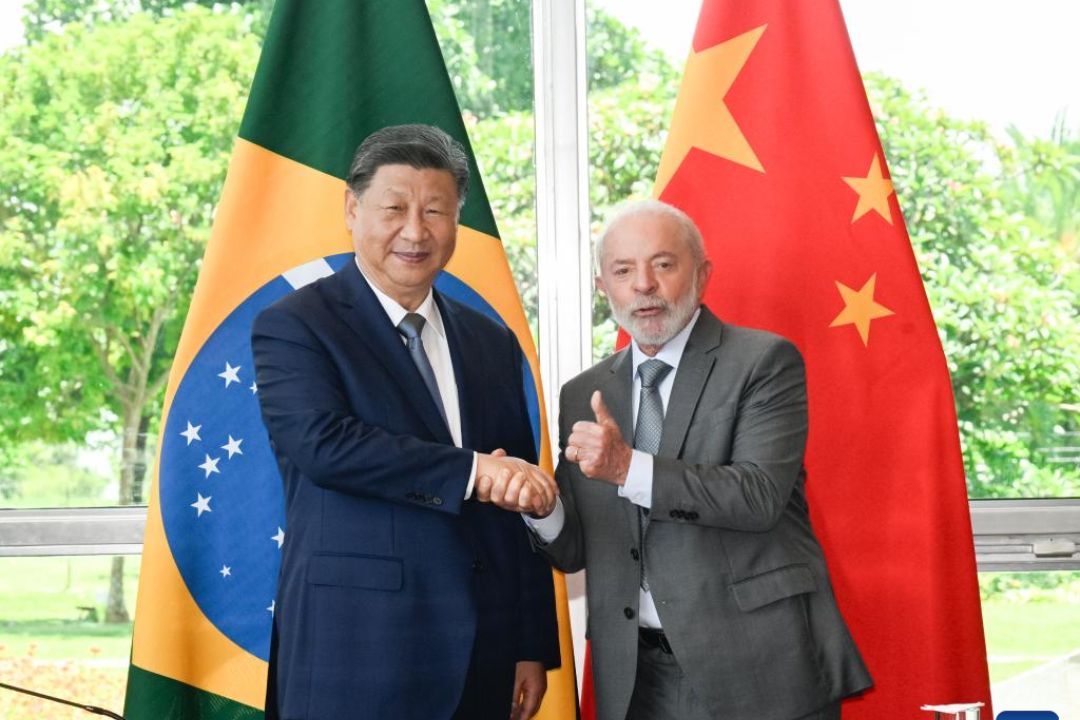
Over the last 50 years, China and Brazil have built a partnership that goes beyond business, focusing on global challenges such as the energy transition and environmental protection. But it was really from the 2000s onwards that this relationship gained a new dimension, with important agreements and collaboration in strategic areas such as politics, technology and culture.
Collaboration between these nations has driven joint initiatives in the field of renewable energy, including biofuels. In this context, we can mention the Joint Action Plan (PAC 2010-2014), which established guidelines for bilateral cooperation in strategic sectors, including research and development of biofuel technologies. This plan facilitated progress in joint projects that aim to improve efficiency and expand the use of renewable fuels.
Biofuels are emerging globally as a promising alternative to non-renewable fuels. Ethanol and biodiesel have gained prominence for their ability to partially replace fossil fuels and, throughout their life cycle, reduce carbon emissions as greenhouse gas emissions are the main cause of global warming.
According to the International Energy Agency, in 2021, fossil fuels were responsible for more than 85% of global primary energy consumption. Hydroelectric power represented 2.5%; biofuels and waste contributed only 9.5% of the world’s energy matrix, while renewable sources such as solar, wind, among others, accounted for 2.7% of the world’s energy matrix.
Brazil has always been a pioneer when it comes to renewable energy. Since the 1970s, with the launch of Proálcool, the country has stood out in promoting biofuels such as ethanol and biodiesel. Recently, programs such as RenovaBio have further reinforced this commitment, showing that Brazil is determined to lead the transition to a more sustainable energy matrix.
In 2022, renewable sources constituted 48.74% of the Brazilian energy matrix, reflecting considerable progress in sustainable solutions. Hydroelectric energy, which is one of the main sources in this category, corresponded to 29.89%, while other renewable sources accounted for 18.85%. Oil, with 37.35%, continued to play a dominant role in the country’s energy composition. Natural gas, with 8.56%, was also an important source in energy production. Coal and nuclear energy contributed 4.39% and 0.96%, respectively, indicating a smaller share of these resources in the energy matrix.
These policies reflect Brazil’s commitment to the Sustainable Development Goals (SDGs), particularly the objective that seeks to guarantee universal access to clean and affordable energy and the objective that seeks to promote actions to combat climate change and its impacts. The implementation of policies such as those mentioned above, however, cannot be evaluated exclusively in quantitative terms. It is essential to consider the social and environmental issues associated with the production of biofuels in the context of implementing public policies. Deforestation, for example, often linked to the expansion of biofuels, can nullify the expected environmental benefits. Likewise, it is important to ensure that local communities benefit economically and socially from these initiatives to avoid potential conflicts.
China, as a global economic power, has played a central role in the energy arena. In 2022, the country was shaping its energy matrix with a close eye on the future and continues to maintain this focus. According to the International Energy Agency (IEA), oil, with 17.67% of the energy mix, is fundamental to the Chinese economy, although the country seeks to diversify its sources to reduce dependence and risks associated with price volatility. from this source.
Coal, with 55.47%, remains the main source of energy, despite China’s investments in renewable technologies to reduce carbon emissions. Natural gas, which accounts for 8.49%, is emerging as an alternative to coal, although it faces infrastructure challenges. Renewable energy makes up 16.02% of the energy mix, while nuclear energy, with 2.35%, is expanding as part of the low-carbon strategy, despite concerns about safety and waste management. Oil accounts for 17.67% of the energy matrix.
On the other side of the world, China is also doing its part. Although coal still dominates China’s energy matrix, the country has invested heavily in renewable energy. From the implementation of the Renewable Energy Law in 2006 to the most recent Five-Year Plan for Renewable Energy Development, China is working to reduce its dependence on non-renewable sources. The preparation of the 14th Five-Year Plan (2021-2025) highlights the importance of sustainability, promoting the development of renewable energy sources, with the aim of reducing the carbon footprint and boosting the transition to a low-carbon economy.
The transition to a low-carbon economy involves more than simply adopting new technologies; requires updating public policies to include all aspects of sustainable development. This includes diversifying the energy matrix, encouraging research and innovation in renewable energy, and implementing economic incentives that favor sustainable practices, such as promoting subsidies for sustainable technologies and strengthening environmental regulations.
In addition to technological and environmental advances, the energy transition depends significantly on large-scale and strategic international cooperation. In the case of Brazil and China, the expansion of the use of biofuels presented itself as a relevant topic with the goal of promoting the exchange of best practices and the development of innovative technologies. The Brazil-China Joint Action Plan (PAC 2010-2014) and the Sustainable Energy Cooperation Agreement (2013) established clear guidelines for this cooperation, facilitating joint research and development of biofuels.
The partnership between Brazil and China is broad in terms of joint research and knowledge exchange. This bilateral cooperation strengthens diplomatic ties and promotes essential innovations to address global challenges related to climate change and energy security. In this context, it is crucial to note that, in addition to the environmental and economic advantages, biofuels can also contribute to a country’s energy security. Reducing dependence on imported fossil fuels strengthens national energy resilience by reducing vulnerability to fluctuations in global energy prices and supply disruptions. This is particularly relevant in a context of increasing geopolitical volatility and uncertainty in international energy markets.
It is important to recognize that the energy transition faces significant challenges. Resistance from certain sectors of the fossil fuel industry, volatility in renewable energy prices and technological limitations still represent obstacles. Overcoming these challenges requires an ongoing commitment to research and development, as well as consistent public policies that encourage the adoption of renewable technologies.
Biofuels represent a fundamental part of the global energy transition towards a more sustainable future. However, for its contribution to be effective and sustainable, it is essential to expand its production and use, as well as adopt integrated public policies that promote socioeconomic and environmentally responsible development.
International collaboration plays an essential role in this process. By continuing to invest in biofuels and other renewable sources, Brazil strengthens its economy and energy security, while making a significant contribution to mitigating the impacts of climate change globally. China, as a strategic partner, has also invested heavily in renewable technologies and energy. The relationship between these two nations, strengthened by initiatives such as the Joint Action Plan and the Sustainable Energy Cooperation Agreement, amplifies these efforts. Together, the two countries advance their own sustainability goals and collaborate to address global climate challenges, promoting a more effective energy transition.
This year, as we celebrate the 50th anniversary of diplomatic relations between China and Brazil, it is essential to highlight the significant impact that these two nations have had on the global energy sector. Over these five decades, China and Brazil have consolidated their political and economic ties, in addition to advancing together in the search for sustainable solutions. The collaboration between these two giant nations has been a beacon of progress and a source of inspiration for the entire world. This milestone offers an opportunity to remember past achievements and propel the two countries towards a lasting alliance, further strengthening the friendship and partnership that unite them towards a sustainable and promising future.
Silvio AB Vieira de MeloPermanent Professor of the Postgraduate Program in Energy and Environment (PGEnAm) at the Federal University of Bahia (UFBA). Andrea AzevedoPhD student in the Postgraduate Program in Energy and Environment (PGEnAm) at the Federal University of Bahia (UFBA). Maria Cândida MousinhoProfessor at the Federal Institute of Bahia (IFBA) and the Postgraduate Programs in Energy and Environment (PGEnAm/UFBA) and Knowledge Diffusion.
This text was originally published in China Hoje magazine. Click here, sign up to our community, receive a free digital subscription and access the full content.
Source: https://www.chinahoje.net/parceria-sino-brasileira-um-futuro-sustentavel-juntos/

